Breakfast is the most important meal of the day.
And according to the Asia Pacific Healthy Breakfast Study recently conducted by global nutrition company Herbalife, it is heartening to know that the majority of people (69%) in the region, understand the need of a healthy breakfast to promote their well being and manage their weight.
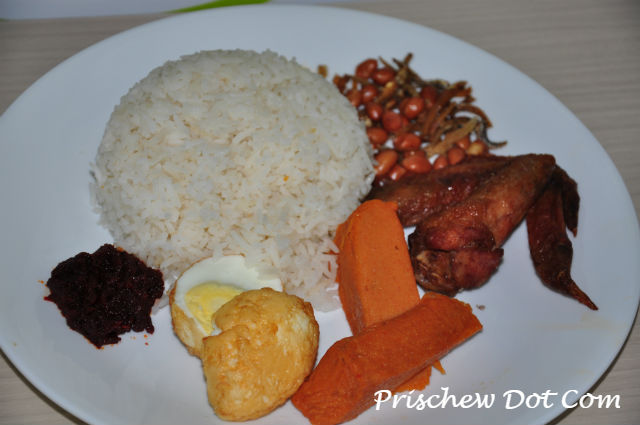
Said Stephen Conchie, Senior Vice President and Managing Director, Asia Pacific, Herbalife, “I am glad to see that most Singaporean consumers are aware of the importance of eating breakfast. At Herbalife Nutrition, we believe that there are many benefits of eating a healthy breakfast.
He continued, “A healthy breakfast with balanced nutrition not only provides the much needed nutrients for the day, but also has wide-ranging benefits in the long run, including supporting healthy metabolism, better brain health and improved weight management.”
Unfortunately Conchie also added that the survey showed that not all Singaporeans are consuming breakfast daily, despite their awareness of such.
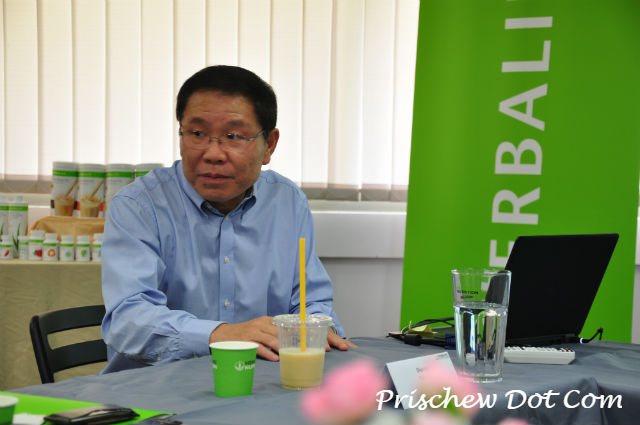
Said Conchie, “The survey also revealed that some are still not consuming breakfast daily. One can easily overcome the obstacles by waking up 15 minutes earlier to prepare something fast such as a protein shake. Eating a healthy breakfast can really set the stage for healthier eating all day long, and maintain a lifetime of wellness.”
To share their findings on the Healthy Breakfast Study, Herbalife invited members of the media to an informal but educational session conducted by Dr. Chen Zhen-Yu, aged 60, a Food and Nutrition Sciences Expert and a member of the Herbalife Nutrition Advisory Board.
With over 27 years of experience in the fields of food and nutritional sciences, Dr. Chen is currently the Chair Professor of the Food and Nutritional Sciences programme and Head of the Graduate Division of the School of Life Sciences at the Chinese University of Hong Kong. He has a PhD from the University of Massachusetts in the United States and today is a renowned nutritional expert, with several industry awards gained throughout his career.

At the session, Dr. Chen shared more with the media present, about the findings, as well as the unhealthy impacts of skipping breakfast.
It was interesting to know that 62% of consumers in the Asia Pacific consume breakfast at home while 16% eat their breakfast at work. 14% consume breakfast on the way to work and the other 7% skip breakfast entirely.
I am glad that I am amongst those who eat breakfast at home – I make it a habit to eat freshly cut fruits almost every morning to begin each day.

For those who do not eat breakfast, a lack of appetite and no time are the top reasons for failing to consume breakfast within three hours of waking.
But in order to keep the body in a good working condition, eating breakfast is important.
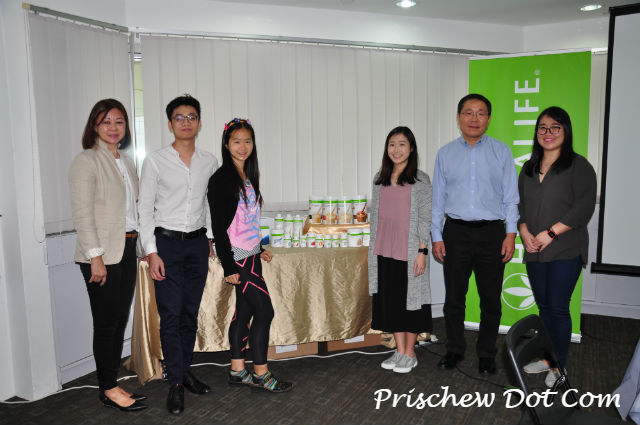
Explained Dr. Chen, “When you wake up in the mornings, your skin is dehydrated and your blood glucose levels are low. So you will need the water and calories, particularly carbs, to replenish your body. Consuming calories in the morning is also necessary for our brain to function in good condition and for our heart to pump blood to the rest of the body.”
The body in fact, can lose up to 450ml of water when you are sleeping, and it is vital that this gets replenished through breakfast.
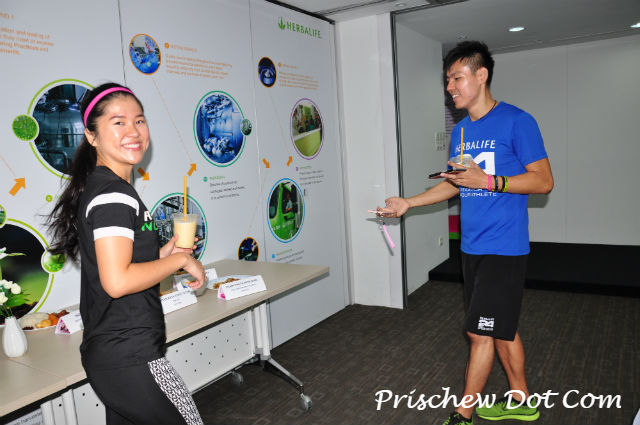
The nutritionist added, “And in addition to carbs, you also need proteins – during the night, our muscle protein would have broken down so you need good protein from breakfast to synthesise the proteins. Dietary fibre helps to promote the growth of beneficial bacteria in the body, and helps to keep us full so that we don’t snack.”
And by skipping breakfast, Dr. Chen also reiterated that it can lead to a myriad of health problems.
He explained, “If people skip breakfast, it leads to obesity, and a high risk of metabolic syndrome disease. It can also increase your risk of diabetes, heart disease and gastric cancer. Because your glucose levels are low, you will also suffer headaches and you won’t be able to focus on your work. This will affect your performance throughout the day at work.”

Failing to have breakfast can also lead to an indulgence in mid-morning snacking, where you tend to reach for unhealthy but easily accessible foods, such as potato chips or sugary cookies, in a bid to to curb hunger pangs.
But eating breakfast, added Dr Chen, can lead to a healthier and efficient metabolism, as well as reduction of hunger pangs, rehydration of the body, better brain health, an improved rate of digestion, reduction of fatigue, maintenance of lean muscle mass and more energy to get through the day.
To eat breakfast, Dr. Chen generally recommends people to wake up early, about 6am or 7am. He said, “You should have breakfast about half an hour after you wake up in the mornings, say about 7am. If you have breakfast too late, you will end up having lunch late as well, and this will in turn, lead to a late supper.”
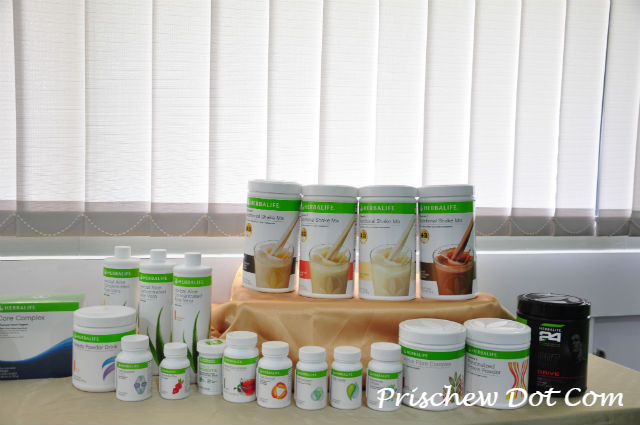
He added, “That will have negative impact on your health; the human body needs to have regular meals at the right times, to get the right nutrients in. If you have say a late supper, you are not doing much physical activity at night, so the calories will convert to fats and it will make you fat. But having an earlier supper at say, 7pm, you will still be moving around and using calories after that.”
A healthy breakfast to Dr. Chen would be a slice of whole grain bread, one hard boiled egg, either a fruit or some vegetables together with a glass of milk.
He said, “This breakfast has a high portion of good quality carbs as well as high fibre, with vitamins and minerals. It is also low in fat and moderately low in calories.”

Many Singaporeans however, are consuming breakfast that is purely carbohydrate predominant, such as bread or toast (65%) and hot beverages (65%).
Overall the human body daily, needs 40-50 per cent of carbohydrates, 30 per cent proteins, 30 per cent fats and 25 grams of fibre. This should be accompanied by eight glasses of water too.
An average man needs 2,200 calories per day and the average female needs 1,800 calories per day, according to the Singapore Health Promotion Board.

And a nutritious breakfast alone, should account for about 15-25% of this total recommended daily calorie intake.
I thought that the session was informative and interesting – I must say that I had learnt a lot about the importance of eating a nutritious breakfast through this.
To end off the media session, there was a mini showcase of some of the common but less healthy local breakfast meals on display: these included Nasi Lemak, Kaya Toast with soft boiled egg, and mee siam.
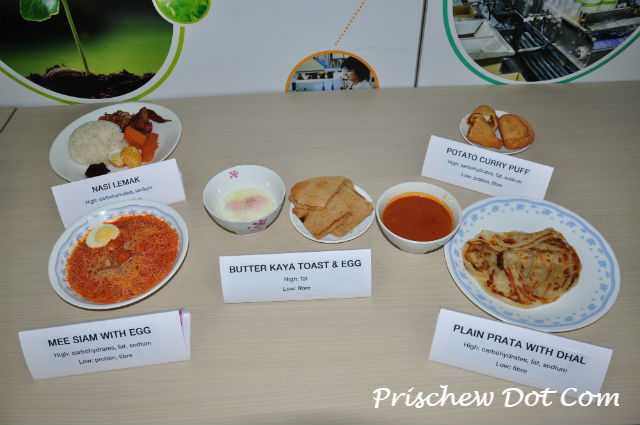
When I saw these breakfast options, for a moment I admit that I had been wondering if Herbalife had managed to come up with healthier versions of these local delicacies to serve to us for breakfast!
But the healthy breakfast that we were given though, had comprised of flour and butter-free pancakes that were prepared with Herbalife’s own special recipe, together with strawberries and blueberries, and a vanilla protein shake.
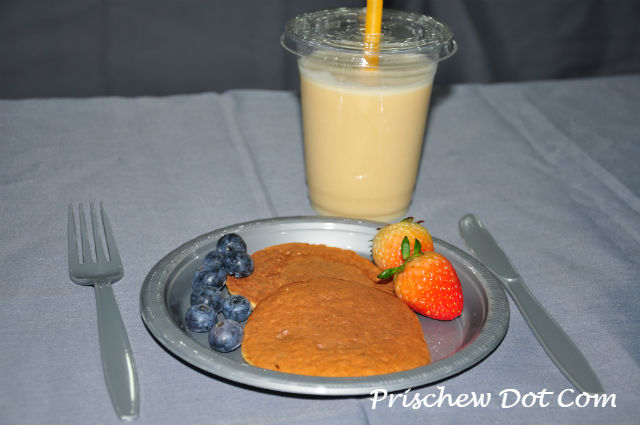
In spite of their plain appearance, I thought that the healthy pancakes had been surprisingly delicious and I rather enjoyed them. They had packed more flavour in it and were indeed much more than meets the eye. Who says that healthy food has to taste bland?

What exactly is a healthy bteakfast for working adults?
Do we eat according to our BMI or just eat as you like.
My own breakfast as a runner costs of a hard boiled egg, two medium sized bananas, a small scoop of almond seeds, half cup of water and a cup of tea. That is good enough to run 21km.
I think that your breakfast sounds quite healthy. So you should be fine.
Generally eating everything in moderation, till you are feeling about 80 per cent full, should be a good rule to go by. Calculating your BMI and counting calories would work too, but this can be quite tiring to have to figure out how many calories in the food you eat, etc. It’ll also destroy the enjoyment of eating.
Basically when they mention unhealthy foods, they were talking about typical Singaporean hawker breakfast such as Nasi Lemak, Kaya Toast and Roti Prata. Your breakfast is healthy in comparison. Haha.